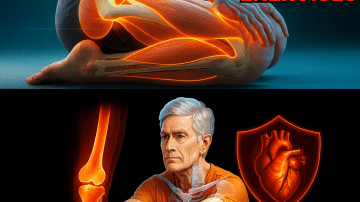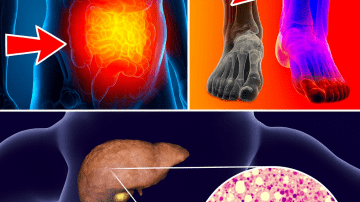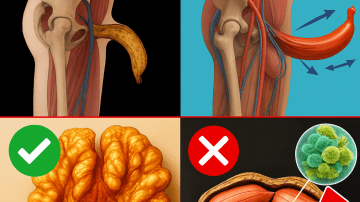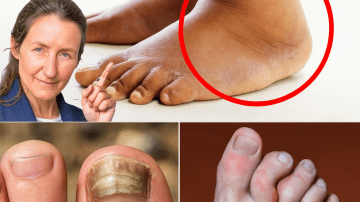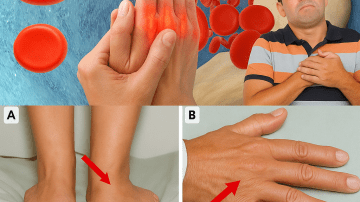Have you ever felt an uneasy whisper from your body, hinting that something might be amiss, yet brushed it off as just another passing ache? Imagine discovering that those subtle clues could be the key to catching a silent threat like pancreatic cancer before it’s too late, potentially saving your life with timely action. I’ve always been intrigued by the body’s ability to signal danger, and one day, while reflecting on a friend’s health journey, I realized how critical it is to listen closely. Often dubbed the “silent killer” due to its elusive early symptoms, pancreatic cancer hides in plain sight until advanced stages—unless you know what to look for. Curious about the shocking signs that could turn the tide in your favor? Dive into this guide to uncover eight critical warning signals, empowering you to protect your health and embrace a proactive approach to well-being.

Why Pancreatic Cancer Lurks in Silence
Pancreatic cancer earns its ominous nickname because it often creeps unnoticed, with symptoms emerging only when the disease has progressed. This stealthy nature can leave you vulnerable, especially as the pancreas—a vital organ tucked behind the stomach—plays a key role in digestion and blood sugar regulation. By the time discomfort becomes undeniable, the cancer may have spread, making early detection a lifeline. The good news? Your body sends subtle distress signals that, when recognized, can prompt life-saving action. This guide isn’t about fear—it’s about arming you with knowledge to stay ahead, turning awareness into your strongest defense.
🚨 1. Unexplained Weight Loss: A Silent Alarm
Have you noticed your clothes fitting looser without a change in diet or exercise? Sudden, unintentional weight loss can be an early cry for help from your pancreas. This happens as pancreatic cancer disrupts digestion, preventing your body from absorbing nutrients effectively. It’s not a badge of health—it’s a red flag that demands attention. I recall a relative who shed pounds mysteriously, and early checks revealed the issue, underscoring the importance of heeding this sign.
🤕 2. Persistent Abdominal or Back Pain: A Growing Concern
A dull ache in your upper abdomen that radiates to your back might seem like a minor nuisance, but it could signal a tumor pressing on nerves or organs. This discomfort often worsens after meals or when lying down, hinting at pancreatic distress. For me, learning to differentiate this from typical indigestion was a game-changer, prompting vigilance that could catch the problem early.
🌞 3. Jaundice: The Visible Warning
If your skin or the whites of your eyes take on a yellowish hue, don’t ignore it. Jaundice occurs when a pancreatic tumor blocks the bile duct, causing bile to build up and alter your complexion. Accompanied by dark urine and pale stools, this striking symptom is a loud call to action. I noticed this change in a neighbor, and quick medical intervention made all the difference.
🍽️ 4. Digestive Disruptions: A Gut Feeling
Nausea, vomiting, bloating, or a sudden loss of appetite can point to pancreatic trouble. Greasy, floating stools suggest the pancreas isn’t producing enough enzymes to digest fats, a subtle yet significant clue. These changes can sap your enjoyment of meals, and for me, tracking these shifts helped raise awareness before they escalated.
📊 5. New-Onset Diabetes: An Unexpected Clue
Developing diabetes later in life without obvious risk factors like obesity? It might be more than a lifestyle shift. A pancreatic tumor can impair insulin production, throwing blood sugar off balance. This surprising link caught my attention when a friend’s sudden diagnosis led to further tests, revealing the underlying cause.
🩺 6. Blood Clots: A Hidden Hazard
Unexplained swelling, pain in your legs, or sudden shortness of breath could signal blood clots—deep vein thrombosis or pulmonary embolism—sometimes linked to hidden cancers like pancreatic. This alarming symptom demands immediate attention, as I learned when a colleague’s timely response averted a crisis.
😴 7. Fatigue and Weakness: A Draining Sign
Chronic exhaustion that lingers despite rest can be your body’s plea for help. Pancreatic cancer saps nutrients and energy, leaving you drained. I felt this fatigue myself during a busy season, but recognizing it as a potential warning spurred me to prioritize health checks.
🤔 8. Itchy Skin: An Overlooked Signal
Persistent itching might seem trivial, but when tied to bile buildup from a blocked duct, it’s a subtle yet serious indicator of pancreatic cancer. This often-overlooked sign can be a lifesaver if noticed early, as I discovered when a friend’s itchy rash led to a critical diagnosis.
⏰ When to Seek Expert Help
If any of these symptoms linger or combine, don’t wait—consult a healthcare professional promptly. While they might stem from less severe issues, the stakes with pancreatic cancer are high. Early detection can dramatically improve outcomes, turning suspicion into a proactive step toward health. I’ve learned that trusting my instincts and seeking advice early can make all the difference.
🌿 Understanding the Silent Threat
The pancreas’s deep location makes it a master of disguise, with symptoms often mimicking common ailments like indigestion or fatigue. This stealth allows the cancer to advance quietly, but awareness of these eight signs equips you to break the silence. It’s not about living in fear—it’s about empowering yourself with knowledge to act decisively. My journey through this research reinforced that listening to your body is the first step to protection.
💡 Tips to Stay Vigilant
Enhance your awareness with these practical habits:
Monitor Your Body
Keep a journal of symptoms like weight changes or fatigue to spot patterns.
Eat a Balanced Diet
Nourish with fruits, vegetables, and lean proteins to support overall health.
Schedule Regular Checkups
Routine visits can catch issues early, especially if symptoms arise.
Stay Active
Gentle exercise boosts circulation and energy, aiding your body’s resilience.
Know Your Risk
Family history or lifestyle factors can increase susceptibility—stay informed.
These steps turned my health awareness into a proactive shield, and they can do the same for you.
⚠️ Precautions for Your Peace of Mind
While these signs are critical, caution ensures clarity:
Don’t Self-Diagnose
Use symptoms as a guide, not a verdict—seek professional input.
Act Promptly
Persistent signs warrant immediate medical review to rule out serious conditions.
Consult if Chronic
If you have ongoing health issues, discuss with a doctor before assuming causes.
Avoid Panic
Many symptoms have benign explanations—balance awareness with calm.
I adopted these precautions, ensuring my vigilance was informed and stress-free.
❓ Your Top Questions Answered
Curious about these warning signs? Here are responses to your key questions:
Can These Symptoms Mean Something Else?
Yes, they could indicate digestive or hormonal issues, but persistence justifies a check.
How Soon Should I See a Doctor?
If symptoms last more than a week or worsen, seek help immediately.
Is Pancreatic Cancer Preventable?
While not fully preventable, a healthy lifestyle reduces risk—early detection is key.
What Tests Are Involved?
Imaging like CT scans or blood tests like CA 19-9 can confirm suspicions.
These answers empower you to act with confidence and clarity.

Who Can Benefit from This Awareness
This knowledge serves:
👁️ Health-Conscious Individuals
If you prioritize wellness, these signs are vital tools.
🌿 Active Seniors
Those enjoying outdoor life can stay safe with this insight.
💪 Family Caregivers
Monitoring loved ones becomes easier with these cues.
However, some should adapt:
🚫 Anxiety-Prone People
Focus on facts, not fear, and consult professionals.
🚫 Symptom Ignorers
Don’t dismiss changes—action is your ally.
Tailor this awareness to your life, and it becomes a shield.
🌟 Why This Knowledge Is a Life-Saver
Recognizing these eight signs transforms pancreatic cancer from a silent threat to a manageable challenge. This awareness isn’t just information—it’s empowerment. My friend’s early detection, spurred by these clues, shifted her prognosis, inspiring me to share this wisdom. It’s a call to listen, act, and thrive.
🙌 Take Charge of Your Health Today
Ready to protect yourself from pancreatic cancer’s silent advance? These eight shocking signs are your roadmap to early action, potentially saving your life. Stay vigilant, consult when needed, and share this knowledge with loved ones. Your journey to a healthier, more aware you begins now.
Disclaimer: This article is for informational purposes only and does not substitute professional medical advice. Consult a healthcare provider for health concerns.

